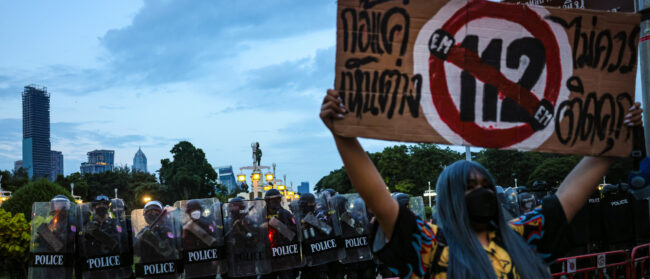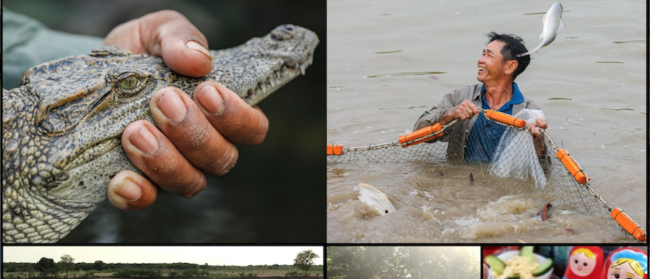The scars left by the Khmer Rouge have faded over time, but along the rutted dirt tracks of Cambodia’s countryside the memories of forced labour and starvation still ache. More than 40 years since the systematic terror and violence of Democratic Kampuchea upended the country and decimated the Cambodian people, little has been offered in the way of compensation to the some 5 million survivors.
“Reparations were never even a consideration,” explained Michael Karnavas, international co-lawyer for Khmer Rouge leaders Meas Muth and Ieng Sary during their cases in the Extraordinary Chambers in the Courts of Cambodia (ECCC). “That’s why when the judges started writing the internal rules, the best they could do was some sort of show, to encourage the government to build a monument. But that’s not really reparations.”
Established in 2007 with the latest appeals coming in 2021, the tribunals designed to hold accountable the architects of the 1975-1979 genocide were deadlocked by layers of bureaucracy and left many victims and survivors unsatisfied. Now ageing and with limited access to healthcare, there is a renewed urgency to collect this generation’s stories and offer some form of tangible recompense.
Securing funding from the United States Agency for International Development (USAID), the Documentation Center of Cambodia (DC-Cam) is conducting a grassroots campaign that has reached more than 24,000 Khmer Rouge survivors across the country.
Launched in 2021, Advancing the Rights and Improving the Conditions of the Health of Khmer Rouge Survivors links youth volunteers with survivors – many isolated in remote communities – to record their stories, take health surveys and provide access to medical checkups at 48 clinics nationwide. Though DC-Cam is unable to use funding for direct care or prescription medication, trained medical professionals at these clinics treat minor ailments and afflictions and can provide guidance to survivors for additional care.
Made up of 700 youth volunteers known as the CamboCorps, including many whose own family members were victims, the project operates in every province and is building a database of the demographics, health status and oral histories of Khmer Rouge survivors. Volunteers also provide care packages and facilitate the establishment of informal associations through which survivors can come together to share stories, discuss community concerns and organise memorial activities such as building stupas.
The project highlights the scale of the tragedy – in many ways the whole country was the scene of a crime that devastated an entire generation – but it also demonstrates how grassroots work can fill gaps in institutional efforts.
More than 10,000 audio recordings have already been uploaded to DC-Cam’s database and preliminary findings are set to be released this year, representing a concrete step to ensure these stories are never forgotten.
“‘Reparations’ is a tricky word. If you look at genocide in other countries – Bosnia, Rwanda – there is always difficulty with the legal framework for reparations,” DC-Cam Director Youk Chhang explained. “But from my position, in Cambodia, our question is ‘Can we give something to the victims?’”
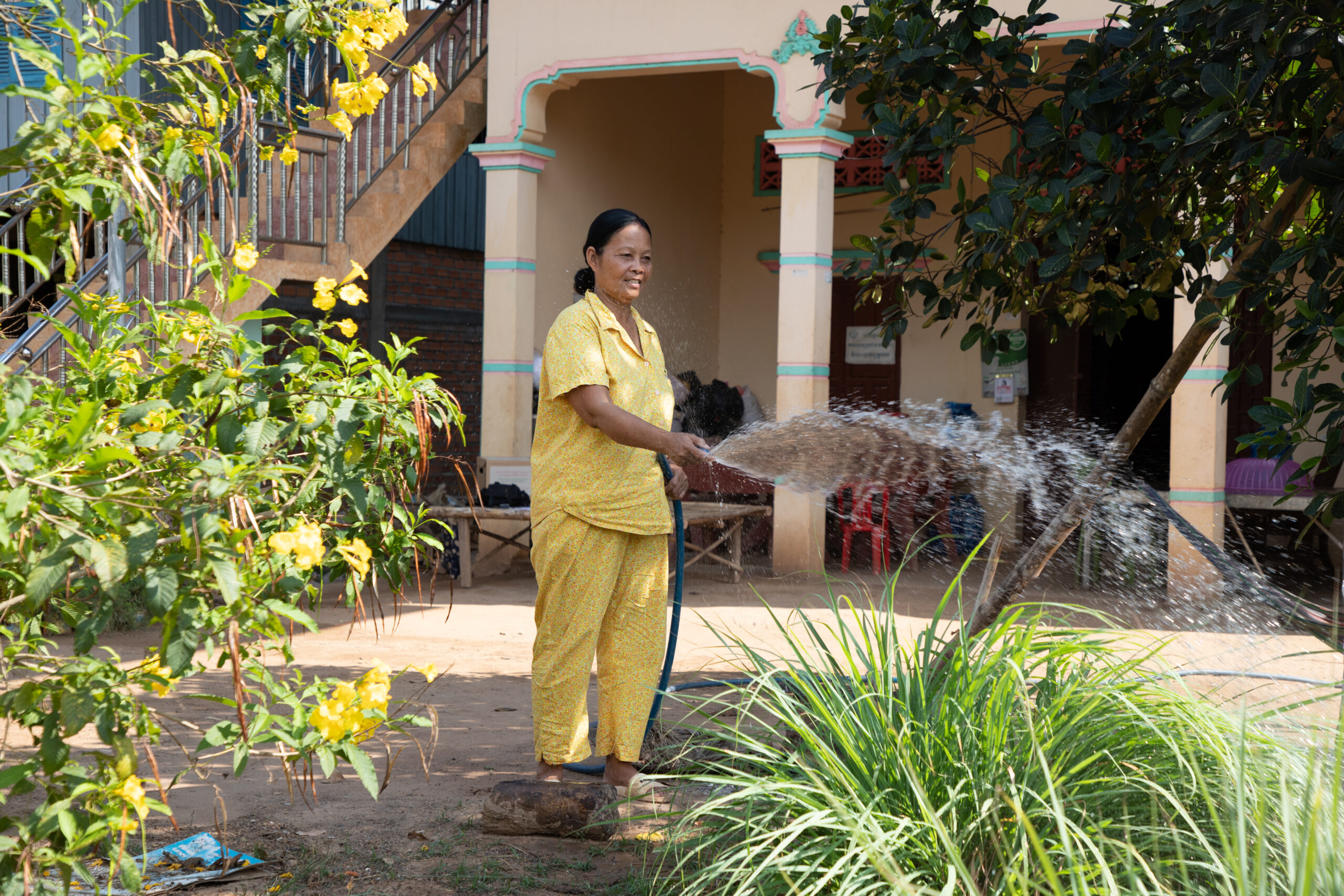
Difficulty accessing healthcare is an issue impacting people across the country, though it is amplified in remote, rural communities. With the trauma of starvation, forced labour and physical abuse leaving lasting effects on survivors, Chhang and his team saw health checkups and medical consultations as something tangible to improve their quality of life. However, inspiration for the project was also rooted in the ECCC proceedings.
“Many of the accused had serious health issues that postponed the trial process,” said Kim Sovanndany, a project coordinator who has worked with DC-Cam for 16 years. “The reaction of the survivors that attended the tribunals when they were told the delays were because the accused were getting treatment; they were concerned. ‘Why do they get very good treatment when we don’t get any care?’”
DC-Cam’s early healthcare work setting the trajectory for Advancing the Rights began in 2014 and focused on common ailments among eldery survivors, especially those living in far-flung villages.
A 2021 study conducted by HelpAge International, with support from the Ministry of Social Affairs, Veterans and Youth Rehabilitation, included surveys among people between the ages of 60 and 90 and found hypertension, diabetes and arthritis are all typical ailments among the ageing population. The study also identified long distances between clinics and communities as an obstacle to accessing quality treatment.
They believe bad health is an unavoidable part of being old.”
Findings from a HelpAge study
Understanding that scheduling appointments does little if patients are unable to reach a doctor, DC-Cam organises transportation for survivors, either with private cars or through community rideshares. However, there are other challenges beyond rough terrain and long distances.
“There were cases where some people were not comfortable speaking with strangers,” said David Ly, a 20-year-old volunteer who works in Kampong Cham province. “They thought maybe we were running a scam but after their neighbours got the health checkup and spread the good news, they changed their minds and participated with us.”
The HelpAge study also found many elderly Cambodians “did not wish to seek help… despite being in pain, because they believe bad health is an unavoidable part of being old.”
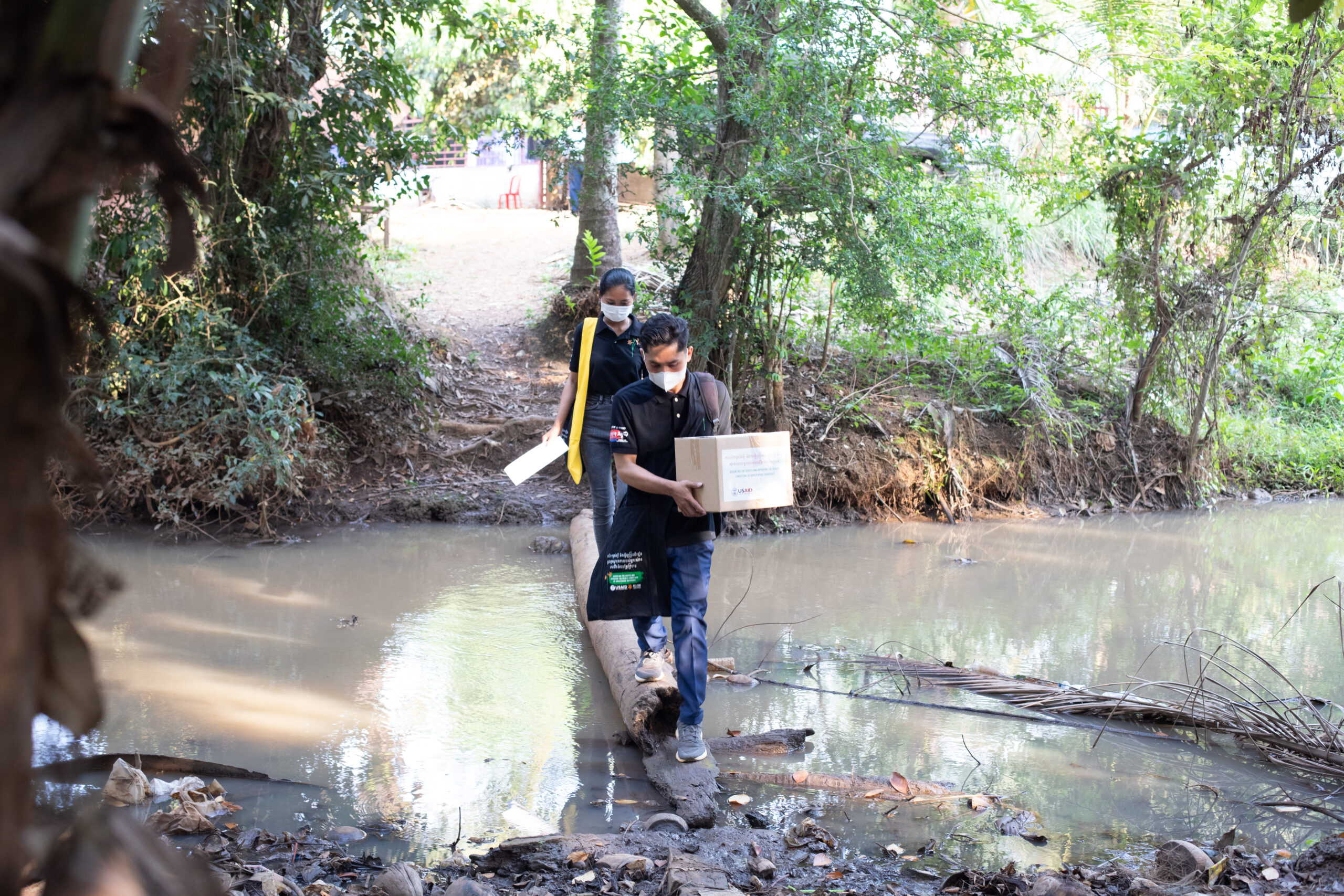
This reality was confirmed during DC-Cam visits. However, 21-year-old volunteer Sothea Srun, who also works in Kampong Cham province and heard about the program through her university, saw how interactions with survivors could help change attitudes about healthcare.
“Our work builds good relationships with communities,” she said. “When we go to do interviews and surveys we also raise awareness and give explanations about the benefits of getting health checkups regularly and not delaying until they get really sick.”
These types of attitudes and a general lack of understanding about the importance of healthcare highlight the importance of the work that DC-Cam is doing. With hundreds of medical checkups completed, the tangible benefits of the campaign are promising for survivors like Chantol Boun, who toiled as a labourer under the Khmer Rouge.
“Our work builds good relationships with communities”
Sothea Srun, DC-Cam volunteer
“I still have digestive problems from before, because there was no food and no clean water to drink; I just had to drink whatever water I could find,” she said. “Before I didn’t realise the problems I had but after the help from the volunteers, I know to go to get my health checked regularly and try to do some exercise.”
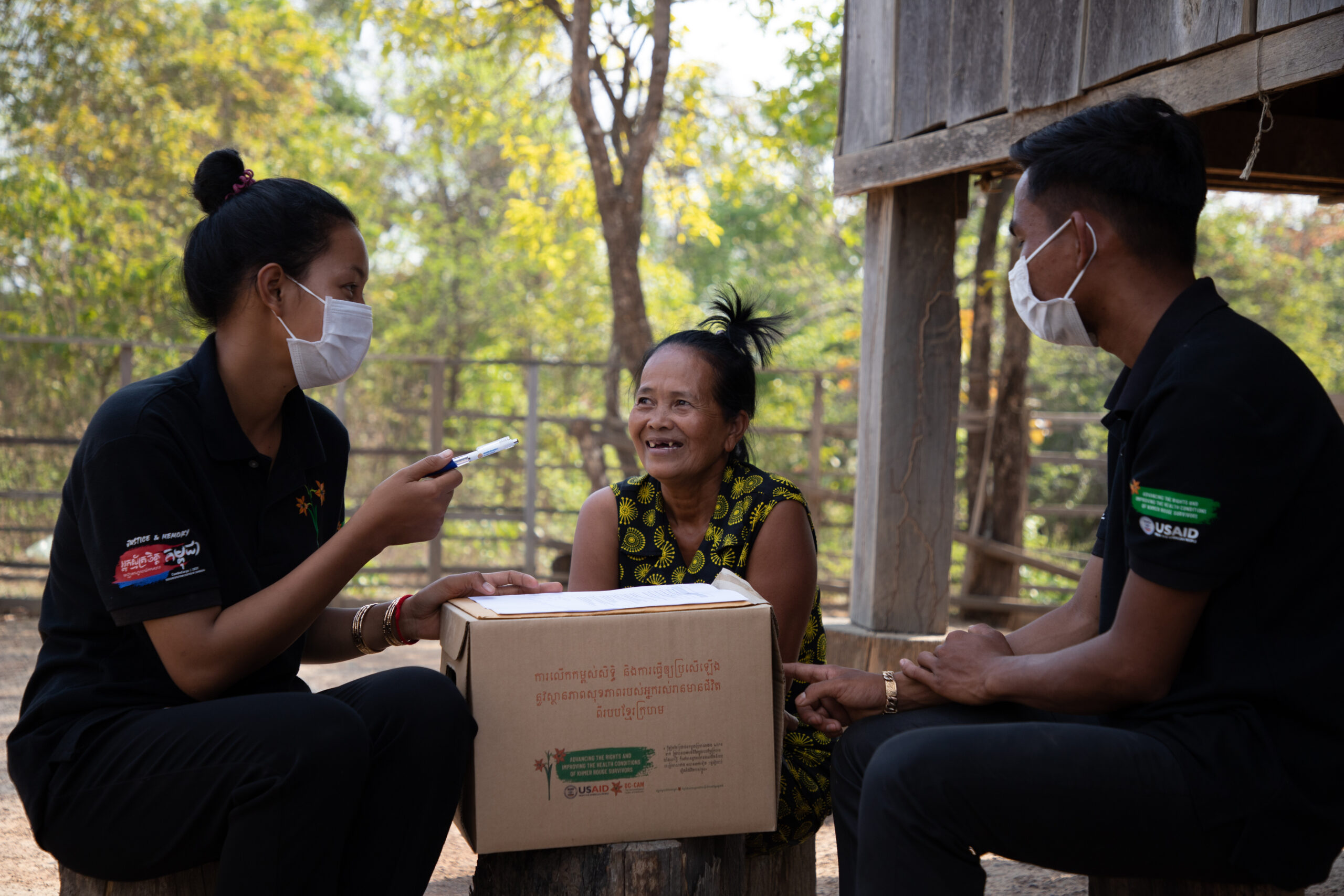
As is often the case with trauma, physical scars only tell part of the story. For survivors, even those who served as witnesses in the trials, any hopes that the ECCC would bring closure were soon abandoned, as proceedings dragged on and bureaucracy won out over action.
“From the perspectives of those victims that testified, they had an expectation of coming in and wanting to tell their entire story,” Karnavas explained. “Essentially, the court is not interested in hearing the entire story, they just want snippets. So those that came to testify left unsatisfied.”
Tasked with compiling civil party complaints in preparation for the trial, providing an outlet for victims to share their experiences has been at the heart of DC-Cam’s work since its inception. The stories that volunteers collect is a continuation of the group’s efforts to help this generation gain some form of closure while ensuring their history isn’t lost to time.
I wanted to tell people what I went through: the fear, the hard work, the starvation”
Minea Sem, Khmer Rouge survivor
For Minea Sem, who was just 13 years old during the Khmer Rouge regime, speaking with volunteers allowed her to process the events in a way she had never been able to do before.
“I feel relief now, but I was angry at [Khmer Rouge leader] Pol Pot and I wanted to tell people what I went through: the fear, the hard work, the starvation,” she said, sitting in front of her home in rural Mondulkiri. “I wanted to tell [my story] so the younger generation will remember what we went through.”
Still carrying shrapnel in her leg from a landmine and living alone as a caretaker on another family’s land, the opportunity to share her experiences also gave Sem a sense of connection with the younger generation, a feeling that volunteers see in many of the people they meet.
Sinai Khean, a 23-year-old volunteer in Mondulkiri province, has no doubt about the impacts this interaction has on survivors.
“The process helps survivors to feel cared for. It gives them some hope and relief because some survivors don’t believe that people want to talk to them,” he explained. “They are happy and feel better because there is someone that wants to hear their stories.”
For Sovanndany and her team, the realities of the trauma that survivors experienced is daunting. However, she believes the project can provide hope to a generation that has waited decades for closure.
“If you think about reparations for these people – they lost their property, they lost their families, they lost everything – nothing can replace this,” she said. “But this project contributes directly to the victims, even if we just give a small contribution I think it can make them happier and healthier.”
Additional Reporting by Chanmakara Vorn.
The production of this article was funded by Documentation Center of Cambodia


